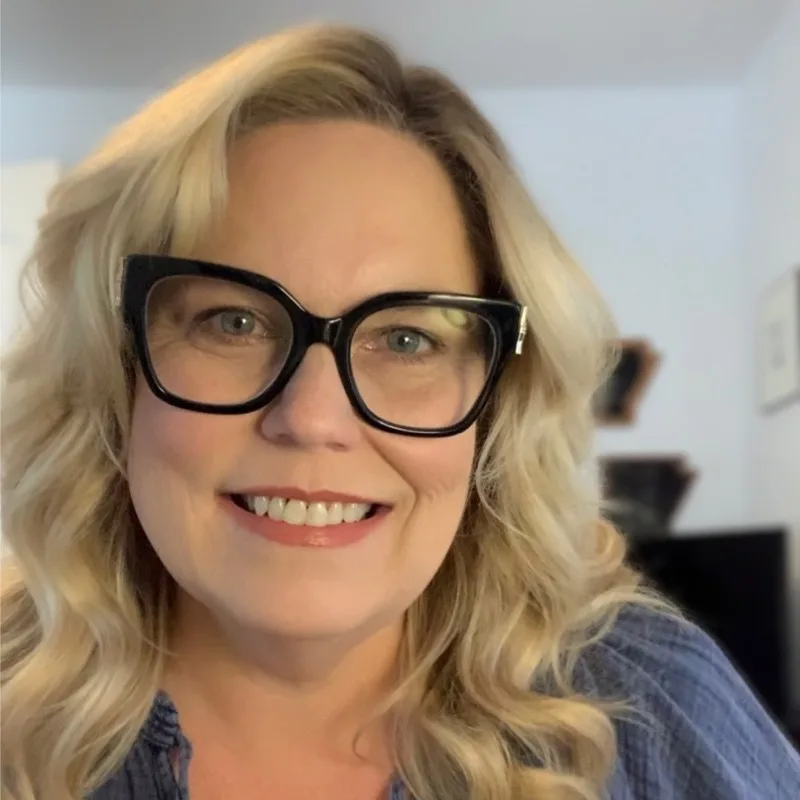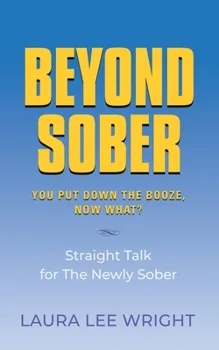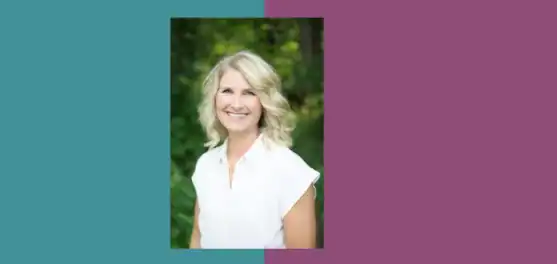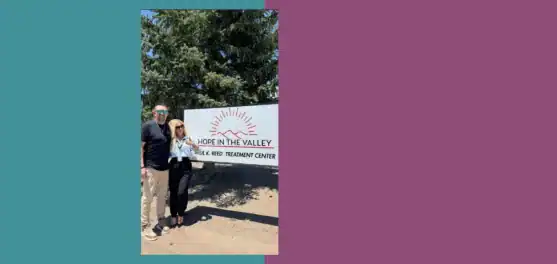“Instead, I found that vulnerability is the bridge to connection. It invites others to say, ‘Me too.’”
Laura Jones has never been afraid of a microphone. For 15 years, she worked in broadcast journalism, both on the radio and in front of the camera, bringing stories to life for audiences. Today, she’s still telling stories, but this time they’re deeply personal. As the author of Beyond Sober: You Put Down the Booze, Now What?, a Certified Life Coach, and a Certified Recovery Coach, Laura uses her own journey with alcohol use disorder (AUD) to help others find hope, tools, and a way forward.

Laura’s sober date is February 11, 2018, which marks the beginning of a new chapter. Her connection to recovery started decades earlier when, as a child, she accompanied her mother to support meetings. She absorbed the language, stories, and sense of belonging that would later make it easier to “identify in” rather than “identify out” when she faced her own substance use.
“Addiction runs in families, but so can recovery,” Laura says. “Healing isn’t just about stopping a behavior, it’s about interrupting a cycle and claiming a new legacy.”
Milestones on the Road to Recovery
For Laura, there have been pivotal moments along the way:
- Asking for help was the first and hardest step.
- Accepting recovery as a lifelong journey of discovery and growth.
- Learning to serve others, both in recovery spaces and everyday life, has brought deep fulfillment.
Her recovery path was rooted in 12-Step tradition, but she supports all pathways to recovery. What matters most, she says, is finding the one that works for you.
Why She Wrote Beyond Sober
Laura’s book was born out of a desire to reach people in the chaotic early days of sobriety, the days when you swing between feeling invincible and feeling stuck in quicksand. She wanted something accessible, digestible, and immediately useful, a “steady hand on your back” during those first steps into a new life.
It is also a resource for loved ones. The book offers an honest look at early recovery, helping friends and family recognize the subtle signs of problem drinking before reaching a dramatic tipping point. By understanding the process and approaching with empathy rather than judgment, they can better support a loved one’s healing journey.

Vulnerability as Connection
When Laura speaks about recovery, whether on stage, in workshops, or in everyday conversations, she sees the same reaction again and again: shoulders drop, eyes soften, and people lean in. Sometimes they whisper their thanks, sharing that they’re affected by a loved one’s substance use.
“I thought honesty about my story was a risk,” she says. “Instead, I found that vulnerability is the bridge to connection. It invites others to say, ‘Me too.’”
For her, recovery is about more than not drinking. It is about reclaiming joy, living with integrity, and helping others find their way back to themselves.
Challenging Alcohol in Sales Culture
In addition to her recovery work, Laura has been sparking important conversations in corporate spaces, particularly in sales, where she has built a successful career. Through candid posts on LinkedIn, she has challenged the entrenched practice of using alcohol as a sales tool.
“Calling drinking ‘culture’ in the workplace alienates people and fuels unhealthy habits,” she says. “It’s exclusionary and, frankly, bad business.”
Her posts have sparked heated debate, with reactions ranging from defensive pushback to private messages of gratitude. The strong response, she says, only proves how normalized alcohol has become in professional settings and how overdue this conversation is.
What’s Next: Books, Workshops, and Speaking Out
Laura is now completing her second book, Selling Without Damage, which tackles dysfunction in sales and offers recovery-informed strategies for healthier, more inclusive business practices. She is also co-launching a workshop series, We Need to Talk About Sales, creating safe spaces for professionals to discuss toxic work environments and find better ways forward.
Whether in corporate boardrooms or recovery communities, Laura’s mission remains the same: to continue sharing her story and demonstrating that recovery is possible for anyone, anywhere.
“In the 12-Step community, we say the only way to keep it is to give it away,” Laura says. “So that’s my plan, keep giving it away.”
Share Your Story
This epidemic has given us one common experience: we have all become experts in our own way. At SAFE Project, we believe that we strengthen one another by sharing our stories. Whether you are in recovery, lost a loved one, or are making a difference in your community, you can help others on this journey. We’d like to hear from you.


